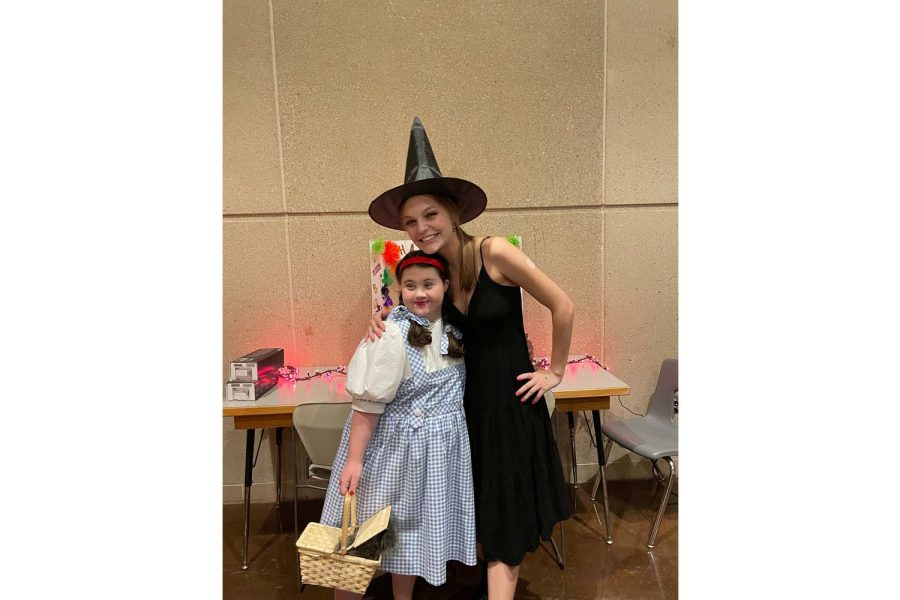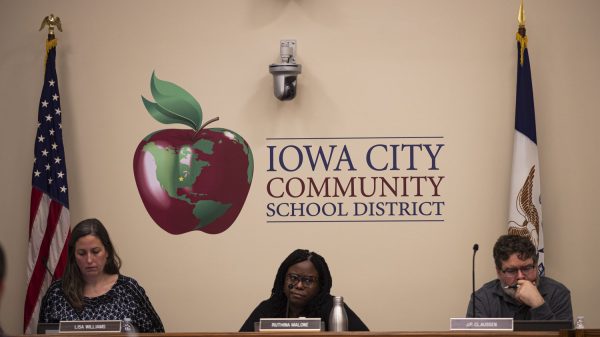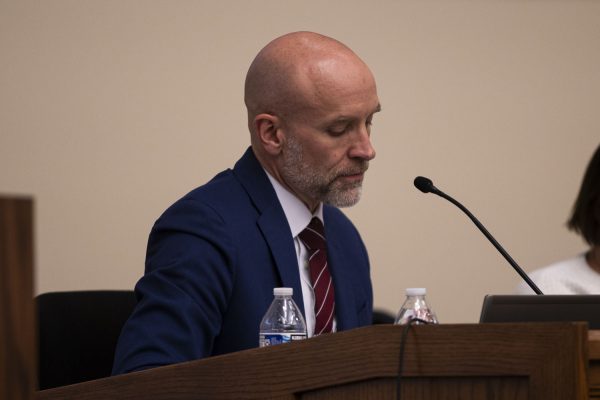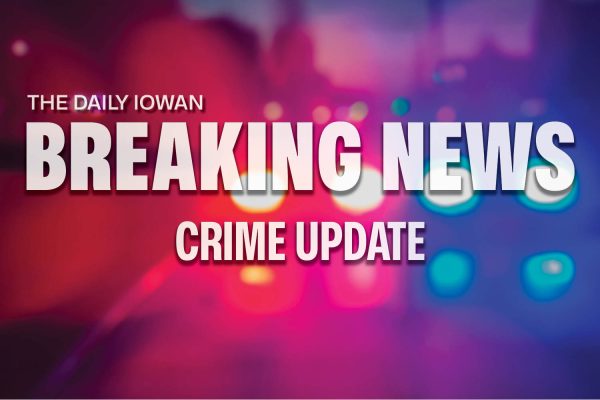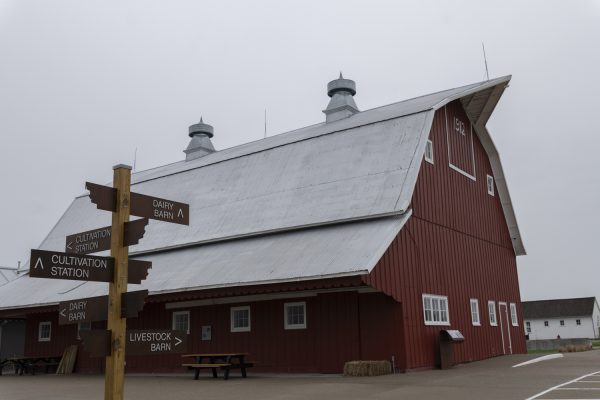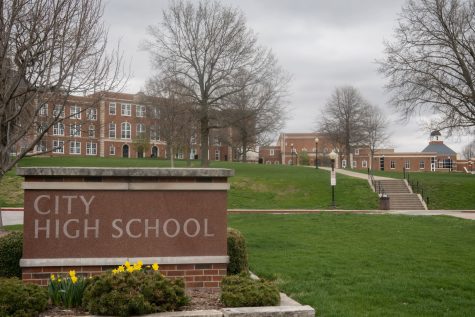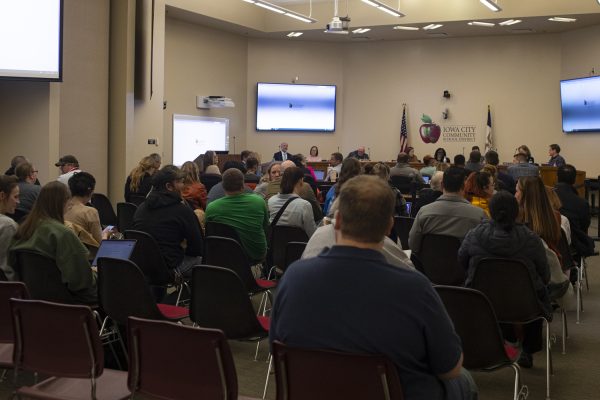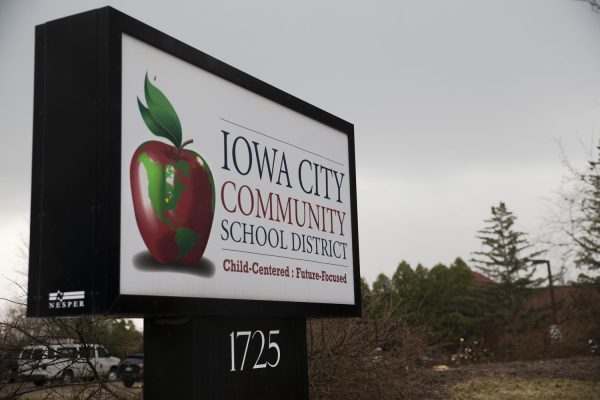New City High inclusion club to help create friendships
City High is establishing a nonprofit that will help create long-lasting friendships for those who are and are not intellectually disabled.
November 1, 2021
Iowa City High School is looking to push forward inclusivity through friendships. To do so, they’ve established the Iowa City Community Inclusion Club, formerly known as Best Buddies.
The nonprofit aims to establish friendships among high schoolers with intellectual disabilities and those without disabilities. The club has hosted activities like bowling nights and Halloween parties.
City High teacher Tom Braverman, who works with students with disabilities, said he has been working on making the club a reality for more than a decade. He’s worked with Best Buddies Iowa and Best Buddies International for 14 years.
“For years, we have worked very closely with Best Buddies, Iowa and Best Buddies International. We learned a lot from them, and it was really beneficial,” he said. “However, there were also a lot of hoops to jump through and we thought our time would be better spent. We also needed to raise money for our own chapter in addition to raising money for the state and national organization. Doing both was too much. For that reason, we decided that we would break off this year and do our own thing.”
He said since he and special education teacher Laura Schwab’s jobs specialize in working with students with disabilities, they don’t have a lot of opportunities to interact with students without disabilities.
“For a lot of our students, and for the adults that are in the program, social isolation is a big problem, especially as our students graduate and then enter life after high school,” Braverman said.
Braverman said for the adult members of the Community Inclusion Club, they paired up with Systems Unlimited, a group that provides support living services in homes to people that have disabilities.
“We wanted to start small and identified some adults with intellectual disabilities that we believed would truly benefit from this program,” he said.
Braverman said he was on the board at Systems Unlimited for six years, so the partnership between Systems Unlimited and the inclusion club was an idea that was a long time coming.
The club is using the Odd Fellows Lodge to host group activities. He said the lodge is the perfect place to meet as it has large areas that are accessible to people with disabilities, such as an arts and crafts area and a section with pool tables and foosball.
“Iowa City is full of people who want to help others who have been left behind, move ahead,” he said. “It’s also an inclusive community, you know, whether it’s LGBTQ, people of color, or people that are differently abled.”
Schwab, who has been helping Braverman on the startup of the nonprofit, said it is rewarding to see friendships develop.
“People with intellectual disabilities, just like neurotypical people, know when someone is being genuine and natural and wants to be a true friend,” she said. “The peer connections that we create provide really great, in the moment leadership training opportunities.”
Schwab said the club provides training on how to communicate with a student who is nonverbal, so they can communicate naturally in the halls and in class. As a group, they have talked about identity-first language versus person-first language, as well as awareness about neurodiversity.
“What’s really nice to see is if I am in the hallway, and maybe a football player or a kid who’s involved in a lot of activities, stops and interacts with a student who is nonverbal and encourages their friends to get to know the kid, as well using what that student communicates best [in],” Schwab said. “It affects the entire atmosphere of our school.”
City High student Sara Brenneman said the school has a process called peer buddy, where able students are matched one-on-one with a student with an intellectual disability.
“This is a big part of the inclusion club, because you always have someone to text or call if you need anything,” Brenneman said.
She added that the interview form is sent out to interested students, who fill out what kind of role they want and what friendship and inclusion means to them.
“Some people grew up with siblings with IDD or have friends who have done it before other people who maybe haven’t felt included in other ways wanted to include other people,” Brenneman said.



